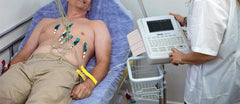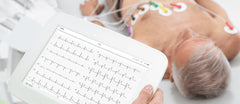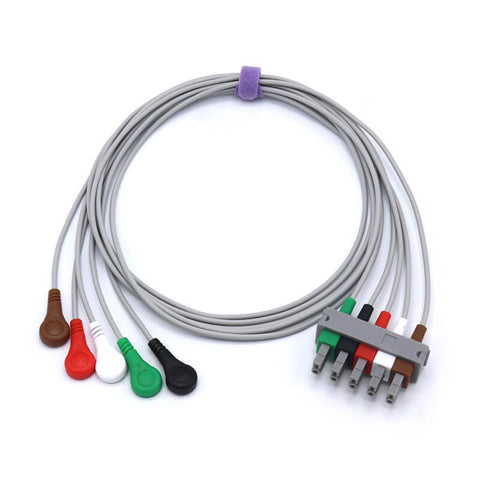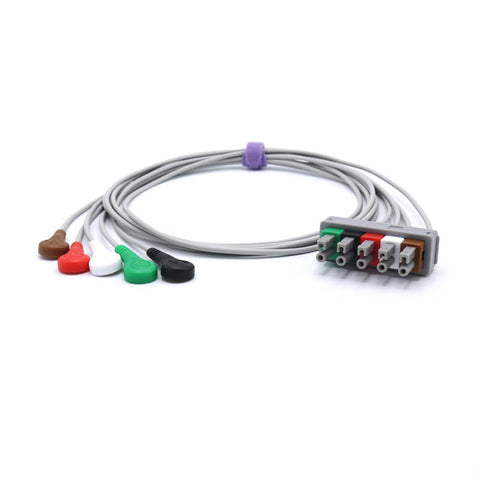What Is a Normal Sleeping Heart Rate? (Updated 2025 Guide)
Your sleeping heart rate—the number of times your heart beats per minute while you sleep—provides valuable insight into your overall cardiovascular health, stress levels, and sleep quality.
For most healthy adults, the normal sleeping heart rate ranges from 40 to 60 beats per minute (bpm), which is slightly lower than the typical resting heart rate of 60–100 bpm when awake. This drop occurs naturally as the body relaxes and metabolism slows down during sleep.
However, variations are completely normal. Factors like age, fitness level, sleep stage, and health conditions can all influence your nighttime heart rate. Let’s take a closer look at what’s considered normal, what affects it, and when you should be concerned.
🩺 Normal Sleeping Heart Rate by Age
Heart rate changes throughout life, and it’s generally faster in children than in adults. Below is a general guideline for average sleeping heart rates by age group:
| Age Group | Normal Sleeping Heart Rate (bpm) |
|---|---|
| Newborns (0–1 year) | 90–160 bpm |
| Toddlers (1–3 years) | 80–130 bpm |
| Children (4–9 years) | 70–110 bpm |
| Teenagers (10–18 years) | 60–100 bpm |
| Adults (18–60 years) | 40–60 bpm |
| Older Adults (60+) | 50–65 bpm |
As we age, our heart rate tends to increase slightly during sleep due to changes in cardiovascular function and metabolism.
🧠 Why Your Heart Rate Slows During Sleep
When you enter deeper stages of non-REM (NREM) sleep, your body’s systems slow down.
-
Your nervous system becomes less active.
-
Blood pressure and breathing rate decrease.
-
The heart doesn’t need to pump as quickly, resulting in a lower heart rate.
During REM sleep—the phase where dreaming occurs—your heart rate can temporarily rise again and fluctuate, sometimes approaching daytime levels. These natural shifts are part of a healthy sleep cycle.
🔍 Key Factors That Affect Sleeping Heart Rate
1. Age
Children and teenagers generally have faster sleeping heart rates due to higher metabolic demands. As adults age, their heart rate during sleep tends to decrease slightly.
2. Fitness Level
Athletes and individuals with good cardiovascular fitness often have lower resting and sleeping heart rates—sometimes even below 40 bpm—because their hearts are more efficient at pumping blood.
3. Sleep Stage
Heart rate varies depending on your sleep stage:
-
NREM sleep: Heart rate gradually decreases.
-
REM sleep: Heart rate increases and becomes more variable due to active brain function and dreaming.
4. Body Temperature and Environment
A cooler sleeping environment and normal body temperature promote a lower heart rate, while overheating, dehydration, or poor ventilation can cause it to rise.
5. Medications and Substances
Caffeine, alcohol, nicotine, and certain medications (like beta-blockers or thyroid treatments) can influence how your heart behaves during sleep.
6. Medical Conditions
Health issues such as:
-
Sleep apnea
-
Heart disease
-
Thyroid disorders
-
Anemia or dehydration
can cause abnormal changes in sleeping heart rate, either too low (bradycardia) or too high (tachycardia).
⚠️ When to Seek Medical Advice
Occasional fluctuations in sleeping heart rate are normal. However, consistent or extreme deviations may indicate an underlying health problem.
🚨 High Sleeping Heart Rate (Above 90 bpm)
A heart rate that stays above 90 bpm during sleep may suggest:
-
Stress or anxiety
-
Fever or infection
-
Sleep deprivation
-
Hyperthyroidism
-
Heart rhythm abnormalities (arrhythmia)
Symptoms to watch for:
-
Night sweats
-
Chest discomfort
-
Shortness of breath
-
Fatigue upon waking
If you experience these symptoms, consult a healthcare provider.
🧊 Low Sleeping Heart Rate (Below 40 bpm)
A sleeping heart rate below 40 bpm can be normal in well-trained athletes but may signal an issue if accompanied by:
-
Dizziness or lightheadedness
-
Fainting (syncope)
-
Unusual fatigue
-
Shortness of breath during rest
These symptoms could point to bradycardia or other cardiac conduction problems and should be evaluated by a doctor.
❤️ Irregular or Uneven Heartbeat at Night
Irregular heart rhythms (arrhythmias) during sleep can increase the risk of stroke or heart failure if left untreated.
Wearable heart rate monitors and smartwatches can help you detect irregularities, but always confirm with a medical-grade ECG or sleep study if abnormalities persist.
📊 Persistent Changes from Your Normal Pattern
If your average sleeping heart rate suddenly changes—whether it increases or decreases for several nights in a row—this could be your body signaling stress, illness, or cardiovascular strain. Tracking trends with a smartwatch or fitness tracker can help identify such patterns early.
💤 How to Maintain a Healthy Sleeping Heart Rate
You can promote a healthier nighttime heart rhythm by following these habits:
-
Keep a consistent sleep schedule
-
Avoid caffeine and alcohol before bedtime
-
Stay hydrated throughout the day
-
Exercise regularly but not right before bed
-
Manage stress through breathing exercises or meditation
-
Sleep in a cool, dark room to support natural heart rate reduction
🩷 Summary: Understanding Your Sleeping Heart Rate
| Category | Normal Range | When to Seek Help |
|---|---|---|
| Adults | 40–60 bpm | Below 40 bpm or above 90 bpm with symptoms |
| Children | 70–130 bpm | Consistent irregularities or high readings |
| Athletes | 30–50 bpm | Only concerning if symptoms appear |
Monitoring your sleeping heart rate helps you better understand your body’s recovery, stress levels, and overall health. Occasional variations are normal—but persistent patterns outside the usual range, especially with symptoms, should be evaluated by a healthcare professional.
Bottom line:
A normal sleeping heart rate is typically between 40 and 60 bpm for adults, slightly higher for older adults and children. If you notice unusual fluctuations, irregular rhythms, or related symptoms like dizziness, fatigue, or shortness of breath, it’s best to talk to your doctor to rule out underlying health conditions.


















